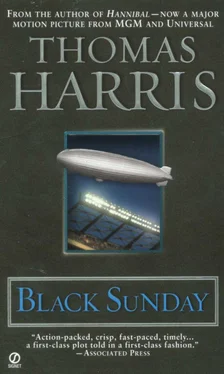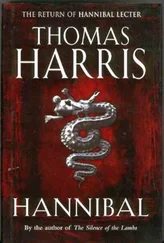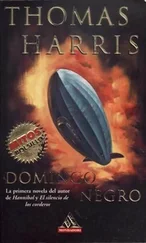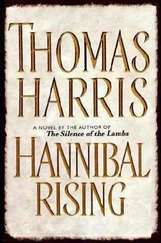“One time they used plastic. The other two were dynamite,” Kabakov said.
“Exactly. You do keep up, don’t you? Apparently there’s not much plastic available here or they wouldn’t be lugging dynamite around and wouldn’t blow themselves up trying to extract nitroglycerine.”
“The July Fifth movement is full of amateurs,” Kabakov said. “Najeer would not have trusted them with this. The ordnance would be separate. If it’s not already here, they’ll bring it in.” The Israeli rose and walked to the window. “So your government is making its files available to me and telling customs to watch out for fellows with bombs and that’s all?”
“I’m sorry, Major, but I don’t know what else we can do with the information we have.”
“The U.S. could ask its new allies in Egypt to pressure Khadafy in Libya. He bankrolls Black September. The bastard gave them five million dollars from the Libyan treasury as a reward for the Munich killings. He might be able to call it off if Egypt pushed him hard enough.”
Colonel Muammar Khadafy, head of Libya’s Revolutionary Command Council, was wooing Egypt again in his drive to build a solid power base. He might respond to pressure from the Egyptians now.
“The State Department is staying out of it,” Corley said.
“U.S. intelligence doesn’t think they’re going to strike here at all, do they, Corley?”
“No,” Sam Corley said wearily. “They think the Arabs wouldn’t dare.”
AT THAT MOMENT THE FREIGHTER Leticia was crossing the twenty-first meridian en route to the Azores and New York City. In her deepest forward hold in a locked compartment were twelve hundred pounds of plastique packed in gray crates.
Beside the crates in the total darkness of the hold, Ali Hassan lay semiconscious. A large rat was on his stomach and it was walking toward his face. Hassan had lain there for three days, shot in the stomach by Captain Kemal Larmoso.
The rat was hungry, but not ravenous. At first Hassan’s groans had frightened it, but now it heard only shallow, glottal breathing. It stood in the crust on the distended stomach and sniffed the wound, then moved forward onto the chest.
Hassan could feel the claws through his shirt. He must wait. In Hassan’s left hand was the short crowbar Captain Larmoso had dropped when Hassan surprised him at the crates. In his right hand was the Walther PPK automatic he had drawn too late. He would not fire the gun now. Someone might hear. The traitor Larmoso must think him dead when he came into the hold again.
The rat’s nose was almost touching Hassan’s chin. The man’s labored breathing stirred the rat’s whiskers.
With all his strength, Hassan jabbed the crowbar sideways across his chest and felt it gouge into the rat’s side. The claws dug in as the rat leaped off him, and he heard the claws rasp on the metal deck as it ran.
Minutes passed. Then Hassan was aware of a faint rustling. He believed it came from inside his trouser leg. He could feel nothing below his waist and he was grateful for that.
The temptation to kill himself was with him all the time now. He had the strength to bring the Walther to his head. He would do it, too, he told himself, as soon as Muhammad Fasil came. Until then he would guard the boxes.
Hassan did not know how long he had lain in the darkness. He knew his mind would be clear for only a few minutes this time, and he tried to think. The Leticia was a little more than three days from the Azores when he caught Larmoso snooping at the boxes. When Muhammad Fasil did not receive Hassan’s scheduled cable from the Azores on November 2, he would have two days to act before the Leticia sailed again—and the Azores were the last stop before New York.
Fasil will act, Hassan thought. I will not fail him.
Every stroke of the Leticia’s aged diesel vibrated the deck plates beneath his head. The red waves were spreading behind his eyes. He strained to hear the diesel and thought it was the pulse of God.
Sixty feet above the hold where Hassan lay, Captain Kemal Larmoso was relaxing in his cabin, drinking a bottle of Sapporo beer while he listened to the news. The Lebanese army and the guerrillas were fighting again. Good, he thought. Turds to them both.
The Lebanese threatened his papers and the guerrillas threatened his life. When he put into Beirut or Tyre or Tobruk, both had to be paid. The guerrillas not so much as the camel-fucking Lebanese customs.
He was in for it with the guerrillas now. He knew he was committed from the moment Hassan caught him at the boxes. Fasil and the others would be after him when he returned to Beirut. Maybe the Lebanese had learned from King Hussein and would drive the guerrillas out. Then there would be only one faction to pay. He was sick of it. “Take him there.” “Bring the guns.” “Speak nothing.” I know about speak nothing, Larmoso thought. My ear did not get this way from a hasty shave. Once he had found a limpet mine attached to the Leticia’s scaly hull, fuse ready to be set if he should refuse the guerrillas’ demands.
Larmoso was a large, hairy man whose body odor made even his crew’s eyes water, and his weight sagged his bunk halfway to the floor. He opened another bottle of Sapporo with his teeth and brooded while he drank it, his small eyes fixed on an Italian magazine foldout depicting heterosexual buggery, which was taped to the bulkhead.
Then he lifted the small Madonna from the floor beside his bunk and stood it on his chest. It was scarred where he had probed it with his knife before realizing what it was.
Larmoso knew of three places where he might turn explosives into money. There was a Cuban exile in Miami with more money than sense. In the Dominican Republic there was a man who paid Brazilian cruzeiros for anything that would shoot or explode. The third possible customer was the U.S. government.
There would be a reward, of course, but Larmoso knew that there would also be other advantages in a deal with the Americans. Certain prejudices held against him by U.S. Customs might be forgotten.
Larmoso had opened the crates because he wanted to put the bite on the importer, Benjamin Muzi, for an unusually large payoff, and he needed to know the value of the contraband in order to figure out how much he could demand. Larmoso had never trifled with Muzi’s shipments before, but persistent rumors had reached him that Muzi was going out of business in the Middle East, and if that happened Larmoso’s illicit income would drop sharply. This could very well be Muzi’s final shipment, and Larmoso wanted to make all he could.
He had expected to find a whopping shipment of hashish, a commodity Muzi often bought from Al Fatah sources. Instead he found plastique, and then Hassan was there, going for his pistol like a fool. Plastique was heavy business, not like a normal drug deal where friends could put the squeeze on one another.
Larmoso hoped that Muzi could solve the problem with the guerrillas and still turn a profit on the plastique. But Muzi would be furious at him for fooling with the crates.
If Muzi did not want to cooperate, if he refused to pay off Larmoso and make amends to the guerrillas for him, then Larmoso intended to keep the plastique and sell it elsewhere. Better to be a wealthy fugitive than a poor one.
But first he must take an inventory of what he had to sell, and he must get rid of certain garbage in the hold.
Larmoso knew that he had hit Hassan squarely. And he had given him plenty of time to die. He decided he would sack up Hassan, weight him in the harbor at Ponta Delgada while there was only an anchor watch aboard, and dump him in deep water when he cleared the Azores.
Читать дальше












